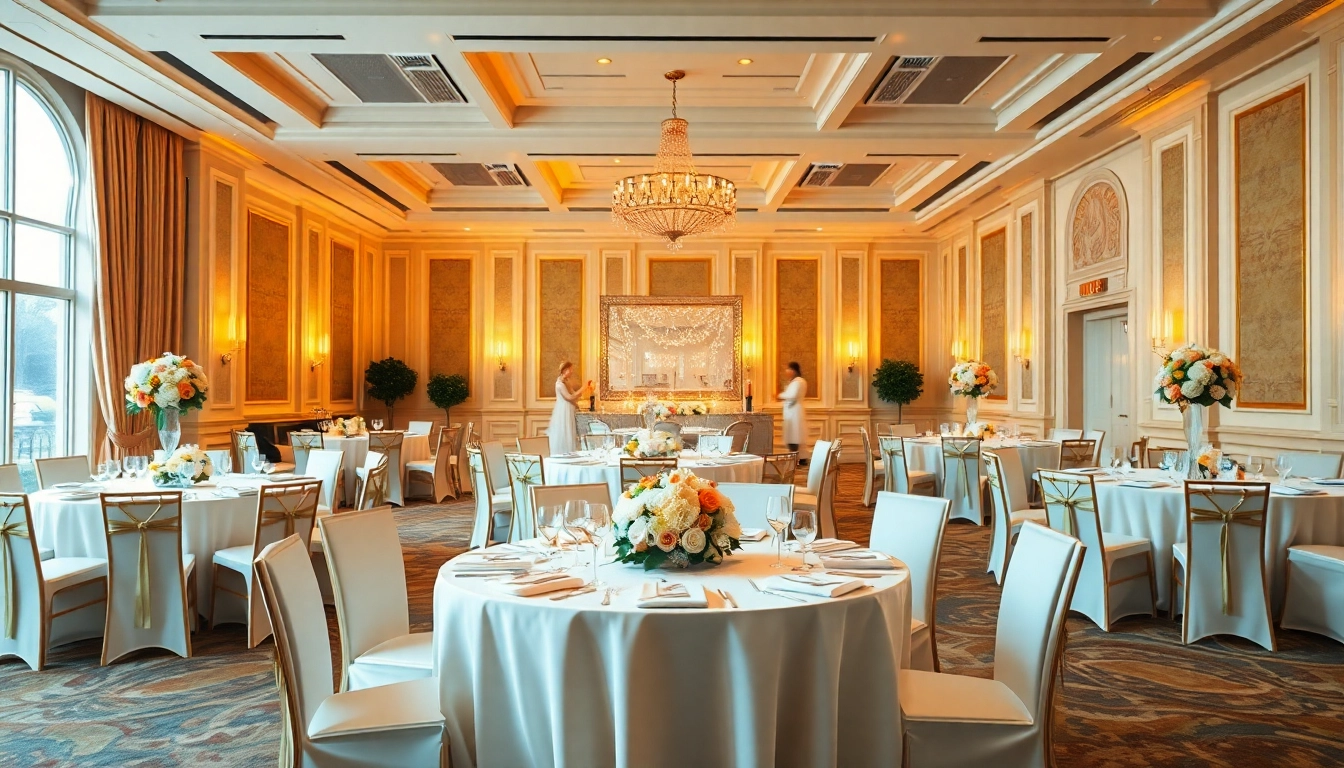Introduction to Event Space Selection
Choosing the right event space is critical to the success of any event, be it a wedding, a corporate retreat, or a community gathering. The venue sets the tone and influences the experience of the attendees. Selecting an ideal location involves a plethora of factors, from the physical attributes of the space to the available services and amenities. In this comprehensive guide, we will explore the intricacies of selecting an event space, including the factors to consider, strategies for setting up, and ways to enhance its utilization.
Understanding the Importance of a Suitable Event Space
The selection of an appropriate event space can significantly impact how your event is perceived. A well-chosen venue not only accommodates guests but can also serve as a crucial tool for branding and marketing. An aesthetically pleasing and accessible location leaves a lasting impression and encourages attendance and engagement. Furthermore, it enhances practical aspects such as logistics, communication, and the overall atmosphere conducive to the event’s objectives.
Key Considerations When Choosing an Event Space
When evaluating potential venues, consider factors such as the space’s capacity, layout, amenities, and location. Each of these elements can dramatically influence how effectively you can execute your agenda. Additionally, think about the ambiance of the venue—the style and tone should align with the theme of your event. Finally, consider how well the venue aligns with your budget, including potential hidden costs that might emerge in the planning process.
Types of Event Spaces Available
Event spaces can vary widely in nature, catering to diverse needs. These may include:
- Hotels and conference centers
- Outdoor venues (parks, gardens)
- Unique venues (art galleries, warehouses, historical locations)
- Community halls and multipurpose facilities
Each type comes with its own set of features and limitations. Understanding the differences will help you select a venue that is perfectly suited for your particular event.
Factors to Consider When Renting an Event Space
Capacity and Layout of the Event Space
The first logistical consideration when selecting an event space is the capacity. Each space boasts a maximum limit that should comfortably accommodate your guests, while also allowing for movement and engagement. Consider the type of event; a banquet-style dinner requires more space per person than a conference with rows of seating. The layout of the space may include options for seating arrangements and stage placement, which can influence interaction patterns among attendees.
Location, Accessibility, and Amenities
The location of your venue is paramount. It should be easily accessible by public transit and have adequate parking facilities. Additionally, consider the surrounding neighborhood—are there nearby accommodations for out-of-town guests? Amenities such as restrooms, kitchen facilities, audiovisual equipment, and Wi-Fi connectivity are also essential, depending on your specific requirements. Choosing an event space with suitable amenities can ease many logistical concerns before the event even begins.
Budgeting and Cost Considerations for Event Spaces
Your budget can heavily dictate your venue choice. Explore various pricing structures while being aware of any extra costs—application fees, damage deposits, and cancellation policies—that may not be immediately apparent. Ask for a detailed breakdown of the total expected costs. Explore package deals that might include catering, decor, or equipment rental to maximize your budget’s efficiency. Knowing how to budget effectively can lead to significant savings, allowing you to allocate funds to other essential aspects of your event.
Preparing Your Event Space
Essential Steps in Event Space Setup
Once you’ve selected your venue, setup becomes paramount. Start by creating a responsive checklist to coordinate the setup process. This should include layout designs, logistical timelines, and designated roles among your team members. Ensure that you confirm all arrangements with vendors (caterers, decorators, AV technicians) well before the event. A rehearsal, if applicable, will also help mitigate any last-minute surprises and facilitate a smooth execution on the day of the event.
Furnishing and Decor Tips for Your Event Space
Furnishing and decorating your space extends beyond aesthetics; it enhances the functionality as well. Use color schemes and decor that align with the event theme while ensuring that guests are not obstructed in their movement. Opt for comfortable seating arrangements—keep in mind the nature of your event when deciding on seating style. Must-have decorative elements may include centerpieces, lighting enhancements, or thematic backdrops to create an inviting atmosphere for your guests.
Incorporating Technology in Your Event Space
Incorporating technology can elevate the overall experience. Ensure you have adequate audiovisual equipment for presentations or speeches. Consider hybrid or virtual components that allow remote participation, where necessary. Additionally, leveraging social media and live streaming can also enhance engagement, allowing guests to share their experiences instantly while maximizing the overall reach of your event.
Maximizing the Use of Your Event Space
Engagement Strategies for Effective Use of Event Spaces
To maximize the potential of your event space, develop engagement strategies that cater to your audience. This includes interactive elements such as Q&A sessions, workshops, or networking opportunities. Breakout sessions can also be utilized effectively through the clever use of layout and space. By encouraging interaction, you’ll ensure that your guests gain maximum value from attending.
Flexible Event Space for Diverse Activities
Choosing a flexible event space can provide versatility for varied activities. Spaces that can be easily rearranged can cater to different functions, such as lectures, discussions, or entertainment segments. The ability to adapt the layout and setup allows you to effectively utilize the space for multiple purposes throughout the event’s duration.
Feedback and Improvements for Future Events
Post-event evaluations are crucial for continuous improvement. Consider soliciting feedback from attendees about the event space and overall experience. This can be achieved through surveys, suggestion boxes, or informal conversations. Use this feedback to refine your future venue selections and event strategies, enhancing your capability to deliver exceptional experiences over time.
Case Studies: Successful Events in Different Event Spaces
Corporate Events: Unique Approaches to Event Space
Corporate events such as conferences or team-building activities often require careful consideration of venue choice. For instance, a tech company might choose a modern art gallery for a product launch, fostering an innovative environment that aligns with their brand ethos. Alternatively, a law firm may require a more traditional setting, such as a historic mansion, to reflect their professionalism and prestige. Regardless of choice, both examples showcase how creatively selecting an event space can align with corporate goals.
Weddings: Transforming Event Spaces for Personal Experience
Weddings serve as an excellent illustration of how spaces can be transformed to reflect personal stories. Couples often select venues that resonate with their identity, such as rustic barns or beachside locations. The ability to incorporate personalized elements—like themed decor or customized seating arrangements—adds depth and individuality. Exploration of non-traditional venues, combined with personal touches, creates memorable experiences for the couple and their guests.
Community Gatherings: Utilizing Local Event Spaces
Community gatherings are great examples of maximizing local event spaces. Parks, community centers, and local schools can host events that build connections among residents. They provide opportunities for support groups, cultural celebrations, or fundraising activities. Utilizing familiar local venues not only cultivates community spirit but also fosters engagement and strengthens relationships between participants.



